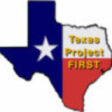Often schools attempt to discontinue or reduce services as a student ages. Transition consists of a coordinated set of activities, which may include how related services might help with the transition to postsecondary education, employment or independent living. Working together to develop a person centered plan, the family and other members of the ARD committee may realize that additional therapy services may be necessary to assist with achieving the transition goal.
For example:
- A student with cerebral palsy is working on creating his own shredding business. Based on his needs, the ARD committee determines that the services of the Occupational Therapist are needed to assist the student in manipulating the paper to the shredder.
- A student with a communication disability is participating in the Work Based Learning program through the school. Based on observation of the student in the workplace, the ARD committee determines that he needs additional direct services of the speech therapist in the work setting in order to effectively greet and assist customers so that he can gain employment.
- A student with Aspergers Syndrome wants to go to college. The ARD Committee determines that additional services are needed from the school counselor to assist the student in managing the college application process and from the speech therapist to work on social skills that will be necessary for living in a campus dorm.
Remember any therapy services must be based on the student’s individual needs, which are determined through evaluation or data collection by the ARD Committee. The related services a student needs while in school should be defined in the Related Services section of the IEP.
A Coordinated Set of Activities
In the transition planning section of the IEP, the focus should be on whether a related service will be needed beyond school. This is NOT the place to talk about the above services that will happen while your child is still in school. When developing the transition plan, you will need to ask yourself:
- What services will your child need once school ends?
- Do you need to identify what agency will provide these services?
- Does your child need to learn how to access these services?
- Can the school help you locate these services?
The school may be able to provide you with contact information on the services available in your community. Take advantage of any transition or resource fairs offered – these are a great way to meet community providers and learn about adult programs, services and opportunities. The school might be able to help a student practice hiring attendants, make appointments, or research community provider options. Ultimately it will be up to you and your young adult to determine who will provide these services and gain access to those services after graduation. The school cannot do this for you.
Here are some examples of things to think about:
- Your child currently receives services from a counselor or a licensed specialist in school psychology. Do you need to learn more about eligibility for state Mental Health services or visit community mental health agencies?
- If your child receives occupational, physical or speech therapy – do you need to make sure your child has insurance (Medicaid or continued coverage on your own insurance) that can continue these services? Does your child need to practice making appointments for these services and/or communicating their needs with their health care providers?
- If your child receives transportation currently – what will happen once the yellow bus stops coming to your house? How will your child access the community or get to work or appointments? Does your child need to learn how to read bus schedules, explore your community’s transportation services or practice making calls for transportation? What about driving – does your child need to research vehicle modifications or obtain special driving assessments through Texas Workforce?
- Does your child have the support of a paraprofessional at school for activities of daily living? Do they need to learn how to interview an attendant? Do they need to learn basic self-advocacy skills in order to stand up for themselves?
- Does your child use any assistive technology or equipment provided by the school? Where will your child access this equipment after graduation?
These are all related services that may need to be discussed within the transition planning process. These services may be documented in the Transition plan.
Remember, the transition plan is a “coordinated set of activities” which means that all parties, including parents, have a responsibility in making the transition plan successful.
By working together with your school and adult service agencies, and with proper planning, you can better ensure that your adult child has access to the therapies and other related services he or she needs for a smooth transition to adulthood.
Additional Resources:
Texas Project FIRST – Transition and the IEP and Therapy Services In School
Helping Educators, Parents, and Other Stakeholders Understand Post School Outcomes, Course of Study, and Coordinated Set of Activities (2009) by Ed O’Leary & Wendy Collison – This document explains IDEA transition requirements and includes sample transition activities and strategies that can be used by the IEP team to determine needed coordinated activities to address the student’s postsecondary goals.
Transition Services – Strategies & Activities (video) from Ed O’Leary of Cutting Edj Consulting resources




